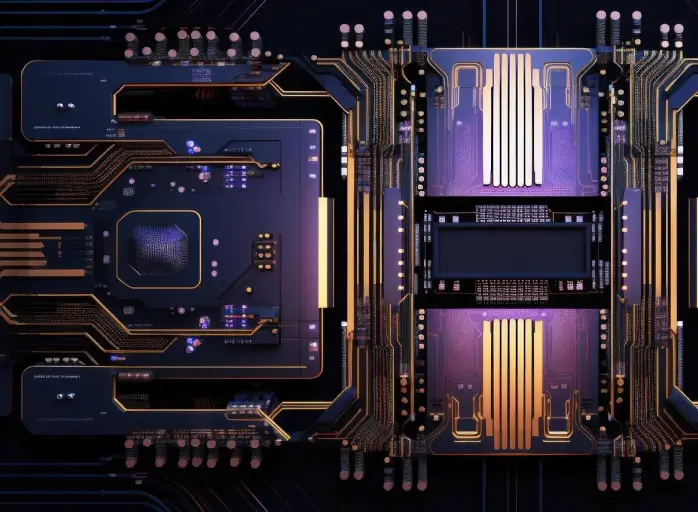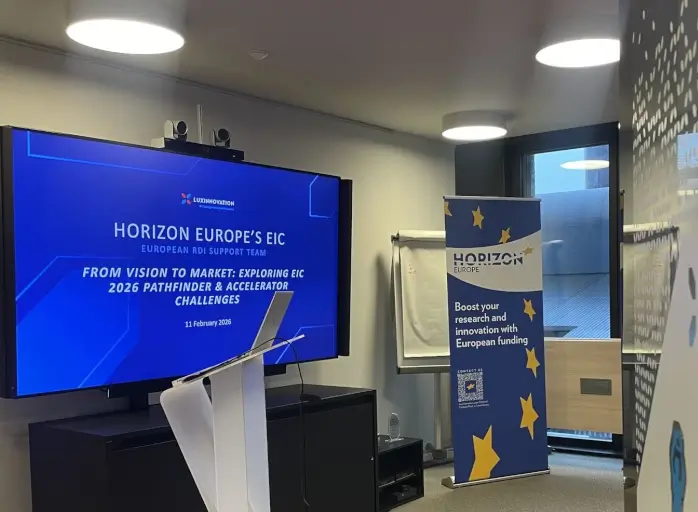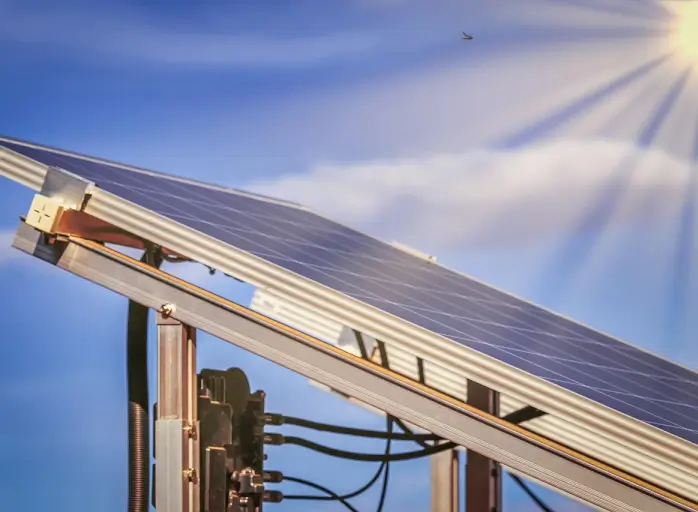

European support to space defence innovation
Europe is boosting space defence innovation, with Luxembourg and the EU launching initiatives to support private-sector advancements.
 Lena Mårtensson
Lena Mårtensson
Space innovation for defence purposes is becoming increasingly important in Europe. “Threats can emerge and escalate quickly, making it essential to stay ahead with cutting-edge technology,” said Mario Grotz, CEO of Luxinnovation, at the Space4Defence event hosted by the agency in late February. “The space sector is a major driver of such advancements, which is why space and defence are so closely interconnected.”
Traditionally, national space agencies led space innovation, but today, the private sector has taken the helm. As a result, space defence is increasingly dependent on commercial players. NATO is set to publish its first-ever commercial space strategy in 2025, and the EU’s space strategy for security and defence also emphasises private-sector cooperation.
We want to accelerate the emergence of new players in deeptech and space who can bring agility and speed to the defence sector.
Guillaume De La Brosse, European Commission
“Space matters for defence,” underlined Guillaume De La Brosse, Head of Unit Defence Industrial Policy at the European Commission. Speaking at a panel discussion on strengthening the space and defence industry, organised by Luxinnovation at Luxembourg’s GovSatCom Conference 2025 on 27 February, he highlighted several key achievements of the EU in recent years: the recognition of space infrastructure as being critical for defence, as well as the intention to enhance EU’s technological sovereignty in the space domain and to reduce strategic dependencies on technology systems originating from outside Europe.
Mr De La Brosse underscored the vital role of private companies. “We want to accelerate the emergence of new players in deeptech and space who can bring agility and speed to the defence sector. We also need to offer contracts to allow these players to commercialise their innovations. We count on the EU member states to buy their technologies.” He further emphasised the importance of fostering a European ecosystem of private investors and venture capitalists willing to invest in innovative defence technologies.
Funding defence innovation
The European Defence Fund (EDF) is the EU’s primary instrument for supporting research and development in defence. It finances the development of critical defence technologies and capabilities across all military domains, including space. Luxinnovation serves as the National Focal Point for the EDF, helping companies join projects and integrate into the EU defence value chain. “Since 2021, 14 Luxembourg entities have received funding through a total of 23 EDF projects,” says Alexander Link, Luxinnovation’s Defence Technology and Innovation Coordinator.
In addition, two joint calls for public-private defence R&D projects have been launched in Luxembourg, including a focus on space. These initiatives provide funding for developing dual-use technologies that meet European security and defence needs.
At the European level, the European Defence Agency (EDA) has partnered with the European Investment Bank (EIB) to identify and finance security and defence projects across the EU. “Our role is to advise the EIB on military issues and dual-use projects and analyse how large-scale investments can contribute to the EU’s long-term efforts,” explained Federica Valente, Manager of the Hub for EU Defence Innovation at the EDA, speaking at Luxinnovation’s GovSatCom conference panel. “R&D and innovation are explicitly mentioned in the partnership agreement.”
Creating strategic partnerships
Beyond funding, enhancing pan-European collaboration is crucial. “The Draghi report on the future of European competitiveness points out that even though the EU is collectively the world’s second largest military spender, this is not apparent when looking at our defence industrial capacities,” stated Mr Grotz. “The European defence industry is fragmented, and there is an insufficient focus on the development of innovative technologies.”
With currently 50 entities involved in 11 different CapTechs, Luxembourg’s industry footprint on the EU level has increased considerably over the past few years.
Alexander Link, Luxinnovation
To help overcome this fragmentation and connect Luxembourg-based companies to European defence value chains, Luxinnovation works closely with initiatives such as the CapTech working groups of the European Defence Agency. The EDA plays a key role in strengthening defence cooperation among EU member states, and its working groups identify research and technology projects aligned with defence capability needs, which can be supported with national funding.
“With currently 50 entities involved in 11 different CapTechs, Luxembourg’s industry footprint on the EU level has increased considerably over the past few years,” says Mr Link. Together with the Luxembourg Directorate of Defence, the national innovation agency has hosted several CapTech working groups in the space, cyber and land domains as well as meetings with a focus on materials and structures, and energy and environment.
Supporting the Luxembourg defence innovation community
The agency is currently working with an industrial defence innovation community including over 110 active entities. The vast majority of them are companies, in addition to several highly specialised research centres. Their focus lies on dual-use technologies, serving both civilian and defence applications. “60% are engaged in space-related activities. However, due to the disruptive nature of their technologies and services, the defence innovation capacity of the community also benefits the land, naval, air and cyber domains,” says Mr Link.
In addition to connecting with European programmes, Luxinnovation supports Luxembourg entities in getting access to NATO’s innovation and acquisition programmes. “We welcome any company developing technologies that might be of relevance for defence to contact us to discuss how we can support them,” Mr Link concludes.
Image credits: Shutterstock







